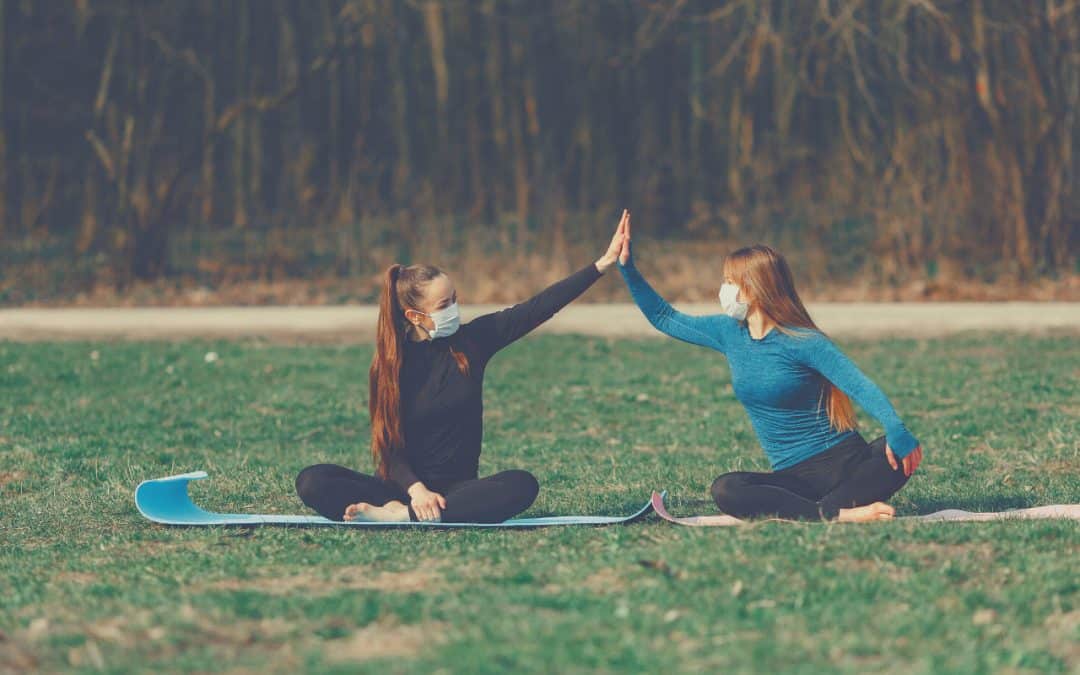Since January the Coronavirus pandemic has spread rapidly throughout the world with infection rates still increasing exponentially in many parts of the world. While Australia acted decisively, closing its borders, implementing social distancing and closing schools, universities and non-essential businesses in an attempt to slow the spread, the virus is still in our communities.
While states are starting to open up and rates of infection are slowing, experts are still urging us to adopt stringent measures including reducing social contact, working from home and quarantining ourselves if we start to show symptoms of a cough or fever.
While the situation is obviously concerning to most people, there are some who are finding this virus particularly difficult to deal with. Many people in our community struggle with anxiety, and depression and have felt the effects of social distancing deeply. Others have found that they are developing symptoms of anxiety and depression after their lives and routines have been subjected to upheaval, job losses, financial worries and the ever-present threat of contracting Covid.
The general advice given to people struggling with these conditions is to use cognitive behavioural tools to help calm the anxiety or reason their way out of depression. Tips include challenging your thoughts by determining the actual likelihood of them occurring, reducing the number of times that you seek external reassurance and keeping yourself busy doing things that occupy your mind.
At times like these, however, the levels of stress that people who are struggling with their mental health experience might be too high for them to use these cognitively based tools. Advice that might help in calmer times possibly may be too difficult to implement because their mind is racing with different scenarios. In the face of a pandemic, a person struggling with their mental health will most likely not just be worrying about themselves, but their family, children, neighbours and society around them.
While we are being encouraged to self-isolate, it’s important to understand that mental health conditions like anxiety disorders tend to flourish when a person is isolated. As our country starts to open up physically, let’s take the opportunity to open up about the stresses and anxieties we all have. By informing ourselves of best practices and then starting conversations, we reduce the stigma and help others understand that it’s a myth that we are all able to keep ourselves calm and collected while facing uncertainty. These conversations don’t need to be negative – if something has worked helped you to reduce your stress there’s a good chance that other people will also find it useful. This is an opportunity to model skills to people about how to reassure themselves, how to find reliable information and assess situations realistically.
Life as normal isn’t going to exist for some time, and coming together as a community is more important than ever. In these trying times, we would do well to prioritise both self-care and care-for-others. Take the time out of your day to do something that you enjoy, make sure that you’re eating well and exercising regularly, even when you really don’t feel like it. Encourage your friends and neighbours to collaborate and build community. Lean on each other and learn from each other. Find self-care routines that suit you and your lifestyle.
Recognise that stress and anxiety is something that we all experience and that there are helpful and less helpful ways of dealing with these emotions. There are techniques you can learn and practices that you can do to help you reduce your stress levels and manage your anxieties. Now is the time to be practising those skills and teaching them to other people in our communities. Remember that all our children are watching how we react and respond to this situation. They’re learning how to be resilient and how to manage their emotions during testing times right now, by watching what we do and say.
Abbey Robb is an award-winning Integrative Therapist who takes a multidisciplinary approach to her practice. Combining modern hypnotherapeutic techniques with psychosensory interventions, mindfulness, SFT and psycho-spiritual shamanic principles, she takes a client-centric approach in her work. Her practice is based in London, but she sees clients from all over the world using videoconferencing software. Her area of speciality is working with autoimmune and chronic health conditions, depression and anxiety.
https://abbeyrobbtherapies.co.uk/




